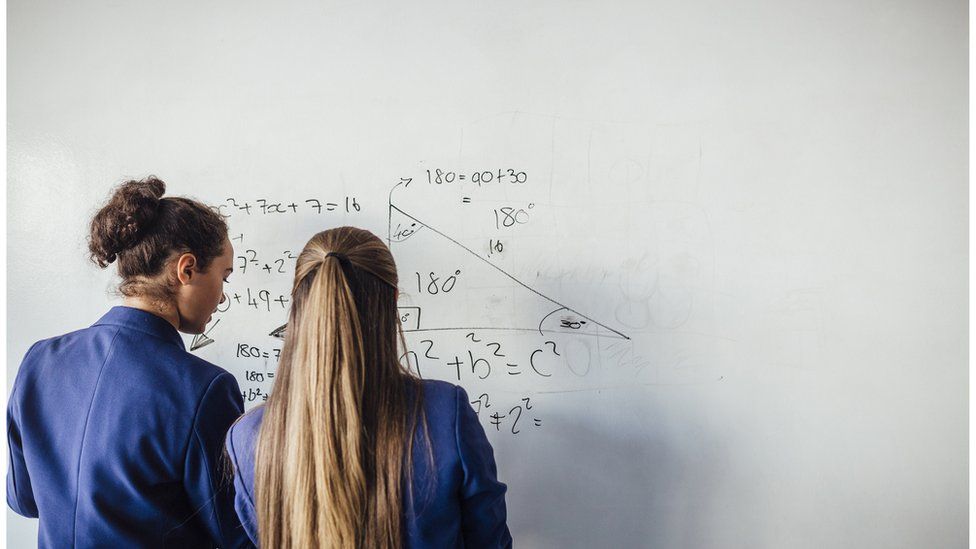ARTICLE AD BOX
 Image source, Getty Images
Image source, Getty Images
A review into ensuring pupils in England study maths up to the age of 18, without making an A-Level in the subject compulsory, is to be set up.
The advisory group will consider what maths skills students need, and whether a new maths qualification is necessary.
Announcing the review in a speech in London, Mr Sunak will argue an "anti-maths mindset" is damaging the economy.
Labour said more maths teachers were needed to deliver improvements.
Shadow education secretary Bridget Phillipson accused the Conservatives of "repeatedly missing their target for new maths teachers" and said Labour would invest in "thousands more teachers, including maths teachers by ending tax breaks for private schools".
Earlier this year, Mr Sunak said he wanted all pupils in England to study maths in some form up to the age of 18.
However, he provided little detail on how this could be done, and the government has acknowledged this aspiration will not be achieved before the next general election.
Speaking on Monday to an audience of students, teachers and business leaders, Mr Sunak will try to offer some more information about his plan - including details of a new advisory group, made up of mathematicians, education leaders and business representatives.
The panel will study countries which have high rates of numeracy and consider whether a new maths qualification should be introduced for 16 to 18-year-olds.
The prime minister will also commit to introducing "a voluntary and fully funded qualification" for teachers leading maths in primary schools and extending Maths Hubs - groups aimed at improving the teaching of maths. There are currently 40 such hubs across England.
During his speech, Mr Sunak will warn his audience that change cannot be delivered "overnight" adding: "We'll need to recruit and train the maths teachers. We'll need to work out how to harness technology to support them.
"And we'll need to make sure this maths is additional to other subjects - not instead of them."
The prime minister is also expected to attack an "anti-maths mindset" which views being bad at maths as "socially acceptable".
He will argue that maths is not just "nice to have" but vital for economic growth.
"If we are going to grow the economy not just over the next two years, but the next twenty, we simply cannot allow poor numeracy to cost our economy tens of billions a year or to leave people twice as likely to be unemployed as those with competent numeracy.
Dr Mary Bousted, Joint General Secretary of the National Education Union, said the prime minister's aim was "laudable" but warned it would be "thwarted unless he faces up to the reality of the state of education in England".
She said there was a "crisis of teacher retention as a result of low pay and excessive workload" and called on the government to explain how it would recruit more maths teachers.
National Numeracy, a charity dedicated to promoting the importance of everyday maths, said the PM's focus on pupils aged 16+ "is not nearly enough to change mindsets".
The charity's chief executive, Sam Sims, said "addressing poor numeracy needs to start much earlier than 16".
"We need a 'cradle to career' vision for numeracy in the UK.
"In our charity's decade of experience, we know that confidence is already damaged, and minds are already set against maths by GCSE.
"Enforcing more classroom maths for those people already scarred by their experience may compound the problem."
The Royal Society said it was "reassuring" to hear of the prime minister's plans, but said a "radical reform" of the way maths is taught "will not be easy".
The Society's president, Sir Adrian Smith, said: "The introduction of Core Maths as an alternative qualification to maths A levels has been a popular and positive change.
"But more still needs to be done to make such courses, and mathematics skills in general, widely available and appealing to students."
In 2019, the UK was ranked 18th in the world for attainment in maths, based on tests taken by 15-year-olds.

 1 year ago
23
1 year ago
23








 English (US) ·
English (US) ·